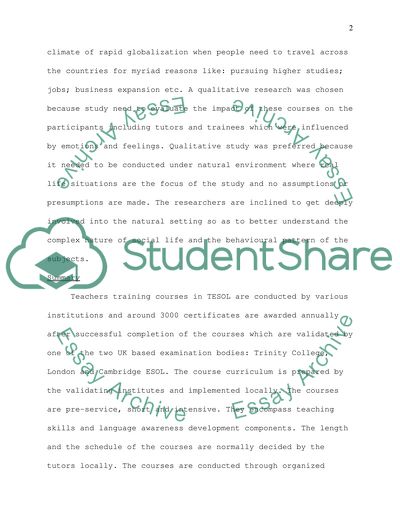Cite this document
(Teaching English as Foreign Language Assignment, n.d.)
Teaching English as Foreign Language Assignment. Retrieved from https://studentshare.org/education/1734799-write-a-critical-review-of-two-qualitative-research-articles-from-journals-such-as-elt-journal-applied-linguistics-and-system-etc
Teaching English as Foreign Language Assignment. Retrieved from https://studentshare.org/education/1734799-write-a-critical-review-of-two-qualitative-research-articles-from-journals-such-as-elt-journal-applied-linguistics-and-system-etc
(Teaching English As Foreign Language Assignment)
Teaching English As Foreign Language Assignment. https://studentshare.org/education/1734799-write-a-critical-review-of-two-qualitative-research-articles-from-journals-such-as-elt-journal-applied-linguistics-and-system-etc.
Teaching English As Foreign Language Assignment. https://studentshare.org/education/1734799-write-a-critical-review-of-two-qualitative-research-articles-from-journals-such-as-elt-journal-applied-linguistics-and-system-etc.
“Teaching English As Foreign Language Assignment”, n.d. https://studentshare.org/education/1734799-write-a-critical-review-of-two-qualitative-research-articles-from-journals-such-as-elt-journal-applied-linguistics-and-system-etc.


